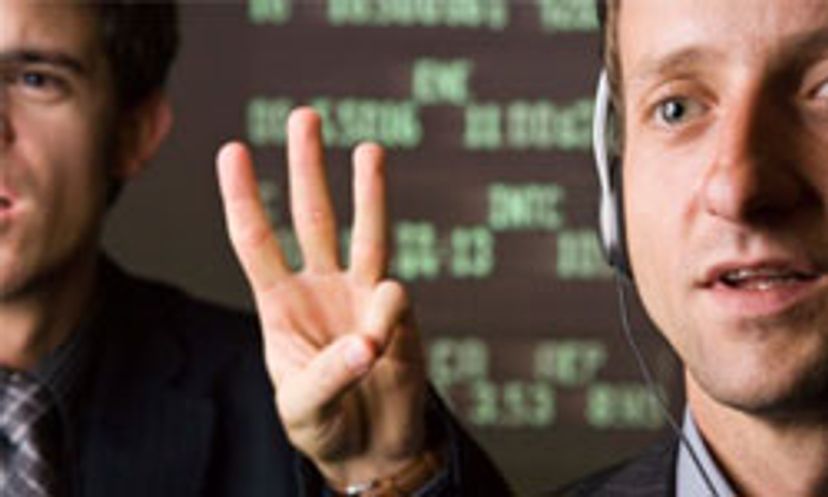
About This Quiz
Don't fear this quiz if you aren't a financial whiz -- we're just testing your basic knowledge and throwing in some history here and there. Check it out and see what you know about the stock market!The Antwerp Bourse opened its doors in 1460 and kept going until 1997.
New York is where all the action is today, of course, but the Philadelphia Stock Exchange, founded in 1790, predated it by two years.
The value of the dollar had been based on the Spanish real, so the NYSE founders looked to Spain for inspiration for their stock market, too. Long story, but the Spanish real is also the reason for all the fractional stock prices in the NYSE.
Advertisement
Shares of the Bank of New York were traded under the fabled buttonwood tree on Wall Street in 1792.
The NYSE tops the list here.
Open outcry is the (perhaps soon-to-be extinct) way to communicate transactions through shouting and hand signals.
Advertisement
A defensive stock is so named because its value doesn't fluctuate much. So a good example of defensive stock would be utility stocks.
Palm out means sell. Four fingers at a 90-degree angle indicates nine (four upright fingers would indicate four).
NASDAQ has been electronic (meaning, no trading floor) ever since its inception in 1971. All other stock markets have lagged far behind, although they're getting there.
Advertisement
Very simply put, the Dow Jones Industrial Average is the average stock value of 30 very large, industrial companies.
Amazon.com is a member of the NASDAQ-100, not the Dow Jones.
Just as in the United States, the Canadian market takes its name from the country's largest city -- Toronto.
Advertisement
A bull market indicates a strong economy.
This commodity broker commedy was directed by John Landis.
You usually hear about the illegal kind of insider trading, but it can be legal. Employees buy and sell stock in the companies they work for all the time, and that's technically insider trading.
Advertisement
It doesn't matter if the insider knowledge positively or negatively impacts the company's stock price -- if an employee acts on it, it's illegal. Same goes for spouses, friends, bankers, lawyers, etc.
Congress created the Sarbanes-Oxley Act in reaction to the Enron scandal. The blackout windows are in effect surrounding major company announcements.
The SEC is in charge of the securities industry and the stock markets.
Advertisement
In the movie "Wall Street: Money Never Sleeps," Michael Douglas will reprise his role as Gordon Gekko.
The historic Buttonwood Agreement, which was signed by 24 of the most prominent bankers, brokers and merchants of the time, described a plan for trading stocks and securities through a common clearing house.